7 WAYS FITNESS SUPPLEMENT COMPANIES ARE RIPPING YOU OFF
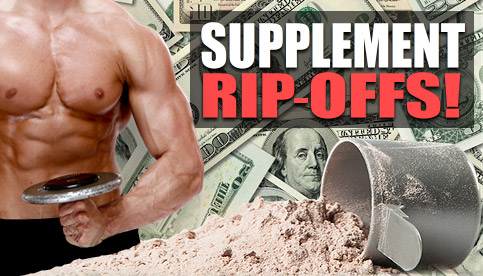
Anyone who regularly follows my content knows that I’m hugely critical of the bodybuilding and fitness supplement industry, and I certainly don’t plan on stopping any time soon.
I’ve been weight training consistently for over 15 years now, and while I don’t regret all the hours I’ve spent in the gym and the good nutritional habits I’ve cultivated over that time, the one thing I do regret is the amount of money I spent on so-called “muscle building” and “fat burning” supplements.
I was too naive back then to realize just how crooked and misleading the majority of the industry really was, and the fact that 90-95% of the pills, powders and potions being marketed to me were nothing more than over-priced garbage I didn’t actually need.
Fortunately, I can now use the knowledge I gained from all those years of firsthand research and experience to help other lifters like yourself avoid this same mistake, so you can save your hard-earned money and stay on the proper path toward your fitness goals.
Dietary supplements are a 37 billion-dollar-a-year business in the U.S alone, and here are 7 different ways these companies are trying to take advantage of you…
Fitness Supplement Ripoffs: 7 Scams To Avoid
Supplement Ripoff #1: Ineffective Ingredients
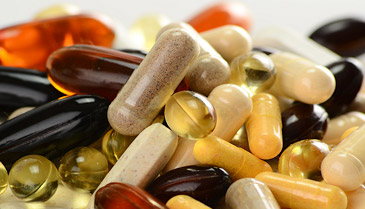
This first point is very basic, and it’s the simple fact that most of the actual compounds being sold as muscle building and fat burning aids just flat out don’t work.
I mean, it’s literally that simple. They’ll either provide no significant benefit whatsoever to your fitness program, or the effects will be so minor that you’ll hardly even notice them in the overall picture.
Don’t fall for this idea that all the fancy looking bottles lining the shelves at your local supplement store were formulated by an educated group of “supplement scientists” walking around in white lab coats, carefully analyzing every ingredient, dosage and combination based on stacks of in-depth supplement research studies.
In reality, the majority of what’s out there is actually created by fitness marketers.
Fitness marketers who simply mash together a nice-sounding list of recognizable ingredients, hire a contract manufacturer to produce it, slap on a flashy label, create a hyped up advertising campaign and then toss it onto the shelves and into the online stores.
The supplement industry is only very loosely regulated by the FDA, and anyone out there with some money and a business idea can easily formulate and sell their own products without any real restrictions.
If you’ve spent as many countless hours as I have reviewing the actual supplement research that’s out there, you’ll know that there really are only a very small handful of supplements available that provide any real benefits at all (you can check out my Fitness Supplement Guide for some of my personal recommendations), and that the majority of supplements being sold have very little to no legitimate evidence to back them up.
Testosterone boosters, fat burners, glutamine, l-arginine, “advanced” forms of creatine, CLA, BCAA’s, myostatin blockers, nitric oxide boosters, most pre-workout supplements, over-priced “high tech” brands of protein powder… you just don’t need this stuff, period. (And this is only a small fraction of the many possible examples)
Supplement Ripoff #2: Excessive Hype
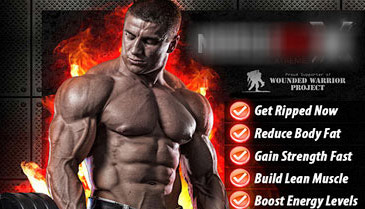
Not only is the list of legitimate, research-supported supplements available a very short one in comparison to everything that’s being sold, but even the ones that do “work” will still only deliver modest results at best.
Sure, I like the idea of popping back a few pills and seeing a huge instant boost in muscle growth and fat loss just as much as the next guy, but it just doesn’t work that way, no matter what that supplement ad with the photo-shopped fitness model on it told you.
Always remember…
Supplements are just that: supplements. They are supplemental to your program and are only intended to provide a small boost to your overall results.
Think of supplements as simply being the icing on a big cake.
The big cake represents the fact that you’re in the gym training hard week in and week out… getting stronger over time… sticking to your nutrition plan consistently… resting and recovering adequately in between workouts… making an effort to stay injury-free…
And from there, whatever supplements you decide to include in your plan are just that last bit of icing on top.
No natural pill or powder is ever going to have that much of an effect, and certainly nowhere near the degree to which it’s portrayed by those who promote them.
Supplement Ripoff #3: Price

Not only are you being sold a flat-out ineffective product far more often than not, but you’ll usually be paying a decently high price for it as well.
It’d be one thing to spend 5 or 10 bucks on something that didn’t work, but in most cases you’ll be dishing out 20, 30, 50 dollars or more per month which can add up quite a bit over the long term, especially considering that most trainees will be using multiple supplements at any given time.
The markups on many popular fitness supplements are absolutely through the roof, with companies often paying just a few bucks to produce each bottle and then selling it for 10 times the cost.
Not only is it a waste of your hard-earned cash, but all of this is money that you could be spending on the things that truly matter in your program such as your grocery bill, gym membership or training equipment.
Supplement Ripoff #4: Label Fraud
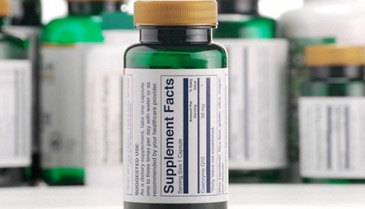
I can’t even count the number of cases that have popped up over the years where popular supplements have been found to just straight up not contain what the label says they do.
One example just last year involved the mega vitamin retailer GNC, along with Target, Walmart and Walgreens where it was uncovered that only 20% of their top-selling herbal products actually contained the herbs listed on the label, with cheap fillers like rice flour and asparagus making up the rest.
Amino spiking has become another huge issue in the protein powder category where many companies have been routinely adding cheap free form amino acids into their blends (such as l-taurine, l-glycine or l-methionine) as a way of cutting costs and artificially raising the protein count.
For labeling purposes, the protein gram amount listed on the product is based on the total nitrogen content, so even though these isolated amino acids are technically not complete proteins, they’ll still contribute to the total.
An amino spiked powder might list “25 grams of protein per scoop” on the back, when in reality up to half of that could just be cheap, ineffective fillers that have no real benefits at all.
The bottom line here is that just because something is listed on a supplement label doesn’t even necessarily mean that that’s what you’re truly getting.
And if some of the biggest, most popular supplement companies out there are getting away with false labelling tactics like this, you can only imagine how prevalent it must be with smaller brands as well.
Supplement Ripoff #5: Proprietary Blends
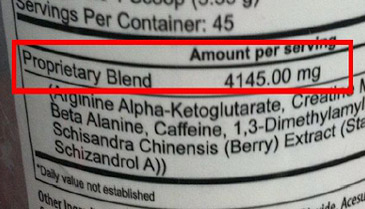
This is a huge one and it’s among the most commonly used “ripoff” techniques in the entire fitness supplement industry.
A proprietary blend is where the label provides a list of all the ingredients that are included in the product along with the total amount for all of those ingredients combined, but NOT the specific amount of each individual ingredient.
No, this has nothing to do with the company’s desire to hide their “top secret formula” from competitors so that it can’t be copied (this is what a proprietary blend is theoretically supposed to be used for)…
In virtually all cases, proprietary blends are nothing more than a misleading labelling tactic used to intentionally under-dose products and save on costs.
By using a proprietary blend, the company can list off a bunch of recognizable ingredients that sound good on paper, but then only sprinkle in a small amount of some or all of them in order to increase their profits.
Since they know that the average consumer buying this stuff doesn’t actually understand proper supplement dosing and is simply responding to the marketing, they can easily get away with this and make more money in the overall picture as a result.
For example, a particular product might list off a 5 gram proprietary blend of creatine monohydrate, beta alanine, citrulline malate and LCLT.
However, if you know what the proper research-backed dosage is for each individual ingredient (3-5 grams for creatine, 3-6 grams for beta alanine, 6-8 grams for citrulline malate and 1-2 grams for LCLT), you can clearly see that it’s impossible for the blend to contain the right amount of each one.
When it comes to muscle building and fat loss supplementation, dosing is critical.
Simply consuming a particular research-supported ingredient on its own is NOT enough. It also must be consumed in the proper study-validated dose if you want to see real benefits.
Bottom line?
If a company isn’t willing to show you exactly what’s in their product including all the ingredients and the precise dosages for each, they’re almost certainly hiding something and you’ll be best off to steer clear.
Supplement Ripoff #6: Banned Substances
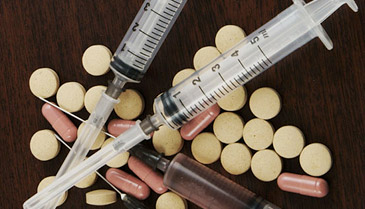
I won’t go into all the specifics on this one (you can run an online search to see a list of the many different cases that have popped up over the years), but aside from certain products being under-dosed and mislabeled, there have also been many instances of various bodybuilding supplements being found to contain banned stimulants, amphetamines and even steroid compounds.
I’m not saying that this is common place, but it has happened quite a few times before and is just another reason to be cautious, especially if you’re a competitive athlete who undergoes drug testing.
Supplement Ripoff #7: Fake Before/Afters And Endorsements
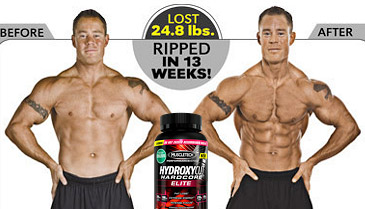
You’ll see this all the time in supplement ads or on social media platforms like Facebook or Instagram…
A guy or girl with an impressive physique standing next to a bottle of pills, a tub of powder or a box of tea saying something like, “I use product X every day to boost my energy and keep the fat off!”
Unfortunately, this is usually nothing more than marketing B.S and it’s too bad that these types of endorsements work as well as they do when it comes to getting people to hand over their cash.
First off, there’s a good chance that the person in the ad doesn’t even use the particular product they’re posing with and that they’re only promoting it to their followers because of the financial compensation they’re receiving.
Supplement companies routinely reach out to those on social media with decently sized fitness followings (myself included) and offer them money to promote their brand as a simple means of paid advertising.
Secondly, a lot of the pictures you see on these platforms aren’t even truly “real” to begin with.
Whether they’ve been touched up to appear more impressive or have been blatantly modified using Photoshop, it’s almost impossible to know nowadays which pictures are legit and which ones are fake.
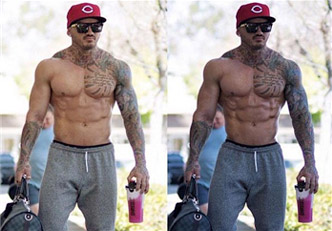
In addition, the use of varying angles, lighting effects and flexing techniques can make before/after transformations seem much more dramatic than they really are.
Lastly, even if the person posing in that Instagram photo really does use the product they’re promoting and their pictures are legit, they still didn’t build their physique as a result of using some particular supplement anyway.
They got to where they are through years of hard work and dedication in the gym, and at best any bodybuilding supplement they might have been using would only be responsible for a small fraction of their results.
Let’s also not forget the fact that many of the popular bodybuilding and fitness figures you see online aren’t even natural athletes to begin with and have additional “chemical assistance” on their side, in which case a natural trainee shouldn’t even begin to compare themselves to that person in the first place.
I hope you found these 7 points useful and that you’ll take them into consideration when deciding how to incorporate supplements into your own fitness plan.
Just remember…
The vast majority of your muscle building and fat burning results are going to be decided by what you do in the gym and in the kitchen, and even a proper supplementation plan will only make up a very small portion of your overall results.
It’s not that I’m against the use of supplements; I’m simply against the over-use and over-emphasis of supplements, and it’s important that you have a realistic view of what these products are actually going to do (or not do) for your results.
The right supplements in the proper dosages can certainly provide a modest boost to your results and improve the convenience of your program, but don’t expect anything too dramatic or think that they’re somehow a replacement for hard work and consistency.
If you do have your training and nutrition in order and want a complete rundown of the items that do have some legitimate use for those who are looking to fully optimize their results, you can check out my Fitness Supplement Guide for details.
If you found this article helpful, make sure to sign up for your FREE custom fitness plan below...




